Long-Haired Scottish Folds: A Guide for Cat Lovers
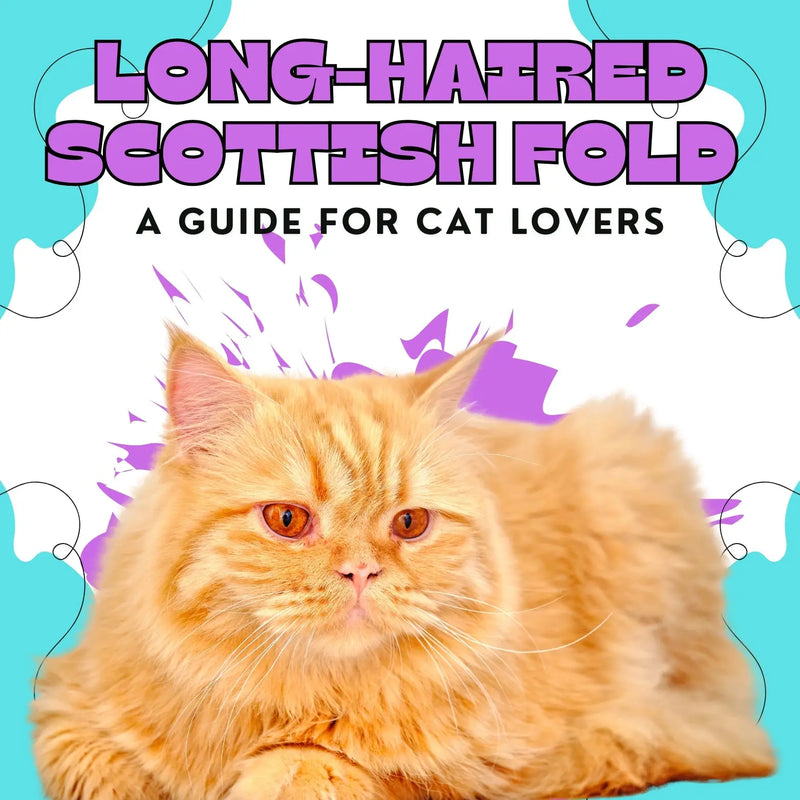
Bringing home a long-haired Scottish Fold is like adding a dash of grace and affection to your family. These captivating cats are not just about looks—they offer endless love and companionship, making them the perfect addition to any home.
Known for their luxurious long coats, endearing folded ears, and sweet, calm demeanor, the long-haired Scottish Fold is a breed that captures hearts with their beauty and gentle nature. Whether you're a first-time cat owner or a seasoned feline enthusiast, this breed has a special charm that will enrich your life.
In this guide, we’ll explore the fascinating history of the long-haired Scottish Fold, delve into their unique characteristics, and provide you with essential tips on how to care for a long-haired Scottish Fold cat. From grooming requirements to health concerns, we’ll give you all the information you need to ensure your Scottish Fold long-haired kitten thrives in your home, happy and healthy.
The History and Origins of the Long-Haired Scottish Fold
The story of the long-haired Scottish Fold begins in 1961 on a farm in Scotland, where a very special kitten was born. This kitten, named "Susie," had unique folded ears that immediately caught the attention of her owner.
Susie’s unusual ear structure was the result of a natural genetic mutation, which led to the development of the Scottish Fold breed. While the original Scottish Fold had a short coat, breeders later selectively bred cats with long, flowing coats, resulting in the long-haired Scottish Fold.
From this modest beginning, the Scottish Fold breed rose in popularity worldwide. Thanks to its distinctive ear fold and sweet, calm temperament, the breed soon gained recognition as a top contender in cat shows. The long-haired Scottish Fold was specifically bred to emphasize the same unique ear fold, paired with a stunning long coat that sets them apart from other breeds.
Distinctive Features That Make the Long-Haired Scottish Fold Truly Unique
The long-haired Scottish Fold is easily recognizable by its unique folded ears and luxurious, flowing coat. These features, resulting from a genetic mutation, give them a stunning and elegant appearance. Along with their round faces and large, expressive eyes, they exude a calm, affectionate demeanor that makes them irresistible.
Key features of the long-haired Scottish Fold:
-
Folded Ears: Iconic ears that fold forward and downward, giving them an adorable, "owl-like" look.
-
Long, Silky Coat: Soft, dense fur that requires regular grooming to prevent tangles and mats.
-
Round Face and Large Eyes: A charming round face with captivating, expressive eyes.
-
Stocky Build: Muscular and sturdy body, adding to their overall strength and beauty.
-
Gentle Temperament: Known for being calm, affectionate, and laid-back, making them ideal companions.
With regular grooming to maintain their coat, the long-haired Scottish Fold is as easy to love as it is to care for. Their stunning appearance and sweet nature make them truly one-of-a-kind.
Welcoming a Long-Haired Scottish Fold into Your Home
Bringing home a long-haired Scottish Fold marks the beginning of a wonderful journey filled with companionship and joy.
Preparing Your Space
Creating the perfect environment for your new feline friend requires thoughtful planning and attention to detail.
Your home will soon be graced with elegance, but it's essential to prepare the environment to suit your new friend. Start by cat-proofing your space, securing loose wires, removing toxic plants, and ensuring windows have secure screens. Create designated areas for eating, sleeping, and playing. Set up a quiet corner with a comfortable bed where your Scottish Fold can retreat when they need solitude.
Don't forget to place scratching posts strategically around your home, as these cats enjoy stretching and maintaining their claws. Consider investing in a tall cat tree, as Scottish Folds appreciate having elevated vantage points despite their generally calm demeanor.
Socializing and Bonding
The foundation of a strong relationship with your Scottish Fold begins with patience, consistency, and understanding their unique personality.
Building a relationship with your long-haired Scottish Fold is incredibly rewarding. They're known for their loving nature, and by giving them time and attention, you'll establish a lifelong bond. Start by allowing your new cat to explore their new environment at their own pace. Scottish Folds are typically gentle and adaptable, but they still need time to adjust to new surroundings.
Spend quiet time near them without forcing interaction, letting them come to you when they feel comfortable. These cats often enjoy being near their humans and may follow you from room to room once they settle in.
Nurturing Your Long-Haired Scottish Fold
Proper care and attention to your Scottish Fold's specific needs will ensure they live a healthy, happy, and fulfilling life.
Grooming Needs
Regular grooming is essential not only for appearance but also for your cat's overall health and comfort.
That stunning coat requires regular attention. Long-haired breeds like this need weekly brushing to prevent matting and keep their fur healthy. Essential grooming tools for your Scottish Fold include:
-
High-quality slicker brush for removing loose fur and preventing mats
-
Wide-toothed metal comb for working through tangles gently
-
Veterinarian-approved ear cleaner for maintaining their folded ears
-
Nail clippers designed specifically for cats
-
Soft-bristled toothbrush and cat-safe toothpaste for dental care
Pay special attention to areas prone to matting, such as behind the ears, under the arms, and around the hindquarters. During shedding seasons (typically spring and fall), you may need to brush daily. Don't forget about their folded ears – clean them gently to prevent wax buildup and infections.
Diet and Nutrition
A well-balanced diet forms the cornerstone of your Scottish Fold's health, supporting everything from their immune system to their beautiful coat.
Feeding your Scottish Fold with the right nutrition is critical for its health. Choose high-quality cat food appropriate for their life stage (kitten, adult, or senior) and consider their activity level when determining portion sizes.
Scottish Folds can be prone to weight gain due to their relatively sedentary nature, so monitor their food intake carefully. Look for foods rich in omega-3 fatty acids to support their coat health and joint function. Fresh water should always be available, and avoid overfeeding treats, keeping them to no more than 10% of their daily caloric intake.
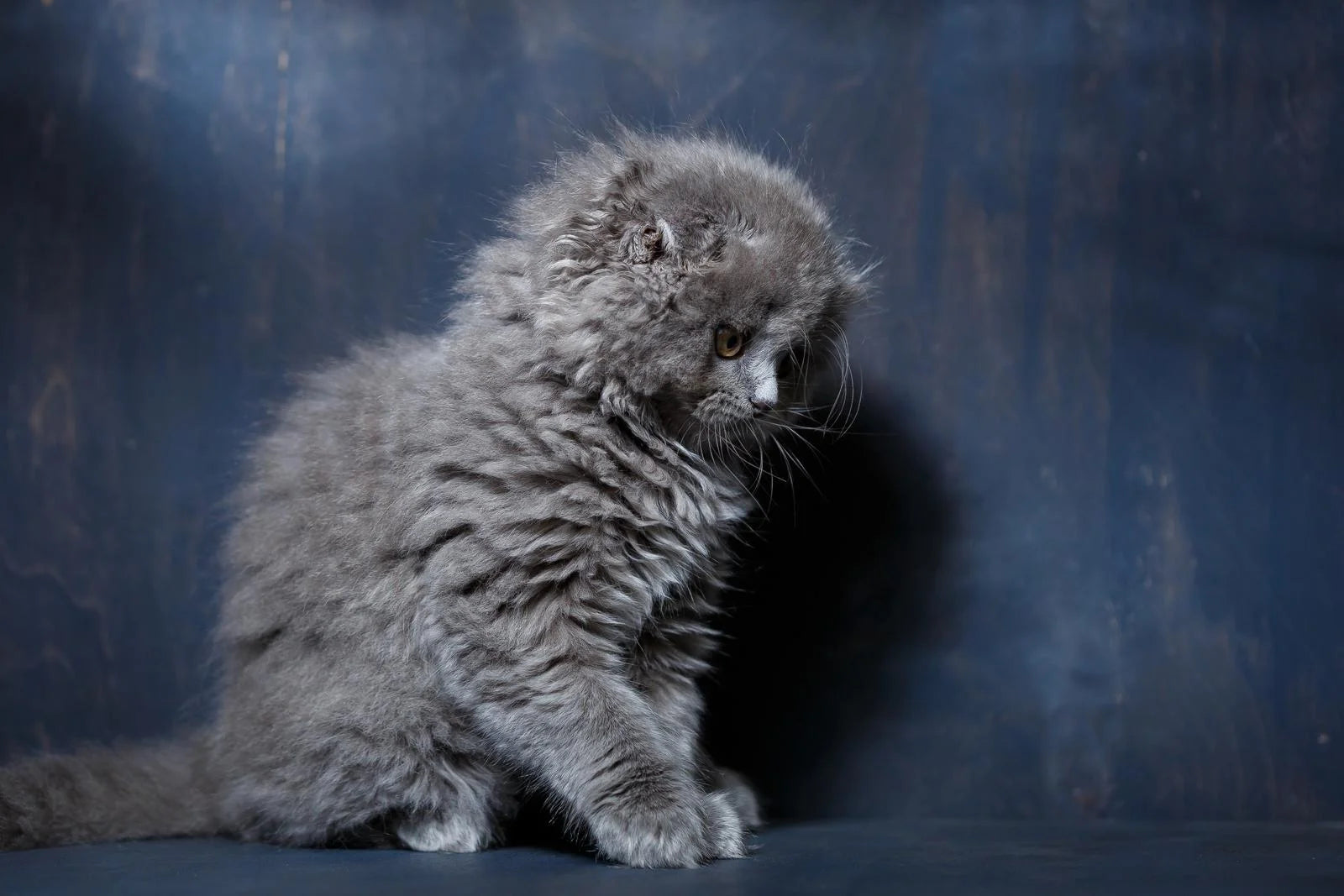
Exercise and Play
Mental stimulation and physical activity are crucial for maintaining your Scottish Fold's physical health and preventing behavioral issues.
Don't let their laid-back nature fool you! Long-haired Scottish Folds love to play. Ideal toys and activities for Scottish Folds include:
-
Interactive feather wands and fishing rod-style toys for simulating hunting
-
Puzzle feeders and treat-dispensing toys for mental stimulation
-
Small plush mice and bird toys that they can carry and "hunt"
-
Laser pointers for encouraging movement (always end with a physical toy catch)
-
Cat tunnels and crinkly toys for exploration and hiding games
These cats enjoy toys that mimic hunting behaviors, allowing them to express their natural instincts. Short, frequent play sessions work better than long, intense ones, as Scottish Folds prefer moderate activity levels.
Health and Wellness: Keeping Your Long-Haired Scottish Fold Happy and Healthy
Long-haired Scottish Folds are generally healthy, but like all breeds, they can be prone to specific health issues. By being aware of these potential concerns and taking proactive steps, you can ensure your cat remains happy and healthy for years.
Common Health Concerns for Long-Haired Scottish Folds
Though generally robust, long-haired Scottish Folds can experience breed-specific health problems. Some of the most common concerns include:
-
Joint Problems (Osteochondrodysplasia): This genetic condition affects cartilage development and can lead to painful joints and arthritis. Regular vet visits will help monitor your cat’s mobility and catch early signs of joint discomfort.
-
Ear Infections: Due to their folded ears, long-haired Scottish Folds are more prone to ear infections. Their unique ear structure can trap moisture and debris, leading to infections. Keeping their ears clean and monitoring for signs of irritation will help prevent infections.
Early detection and management of these issues will ensure your cat remains comfortable and healthy.
Veterinary Care: Ensuring Your Long-Haired Scottish Fold Stays in Great Shape
Routine veterinary visits are essential for maintaining the health and well-being of your long-haired Scottish Fold. Regular check-ups provide an opportunity to catch potential issues early, keep vaccinations up to date, and prevent parasites.
Key points for proper care:
-
Routine check-ups: Schedule annual vet visits to monitor your cat’s health, including eye and ear exams, and overall coat condition.
-
Vaccinations & Parasite Control: Ensure your cat receives the appropriate vaccinations and parasite prevention. Even indoor cats need parasite control, as parasites can be introduced from outside.
-
Health screenings: Your vet will check for breed-specific issues such as joint and ear problems, offering early intervention if needed.
By maintaining consistent veterinary care, you'll be able to provide the best possible life for your long-haired Scottish Fold, keeping them healthy, comfortable, and happy.
Conclusion: A Lifelong Journey with Your Long-Haired Scottish Fold
Bringing a long-haired Scottish Fold into your life is a rewarding adventure filled with love and companionship. With the right care and attention to their unique needs, your new feline friend will thrive, living a long and healthy life.
Curious about other types of Scottish Folds? Explore the Black Scottish Fold breed to learn more and expand your knowledge.
Ready to bring a long-haired Scottish Fold into your home? Check our available Scottish Fold kittens for sale and find your perfect companion today. If you have questions or want to know more about our adoption process, contact us—we’re here to help!
FAQs
1. How often should I groom my long-haired Scottish Fold?
Long-haired Scottish Folds require weekly brushing to prevent matting, but during shedding seasons (spring and fall), daily brushing is recommended. Regular grooming also helps you monitor their skin health and strengthens your bond.
2. Are Scottish Folds good with children and other pets?
Yes! Scottish Folds are known for their gentle, calm temperament, making them excellent companions for families with children and other pets. They're adaptable and typically get along well with everyone in the household.
3. Do all Scottish Folds develop health problems?
Not all Scottish Folds develop health issues, but they can be prone to joint problems (osteochondrodysplasia) and ear infections due to their unique genetics and ear structure. Regular veterinary care helps catch and manage any potential issues early.
4. Can Scottish Folds live in apartments?
Absolutely! Scottish Folds adapt well to apartment living due to their calm temperament and moderate exercise needs. Just ensure they have adequate space for play and climbing opportunities like cat trees.
5. What's the lifespan of a Long-Haired Scottish Fold?
With proper care, long-haired Scottish Folds typically live 12-15 years. Regular veterinary care, proper nutrition, and maintaining a healthy weight can help ensure they live a long, happy life.

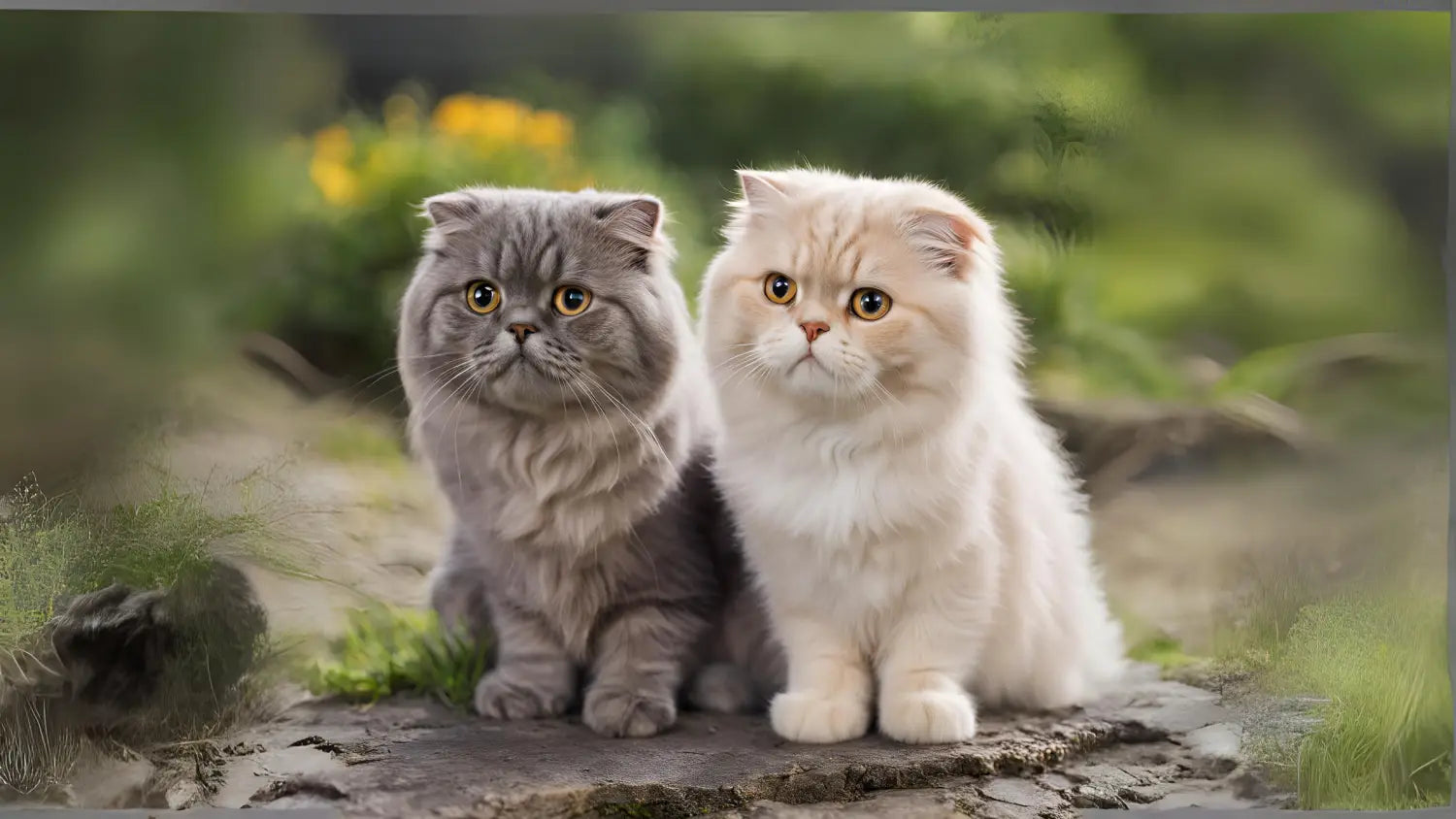
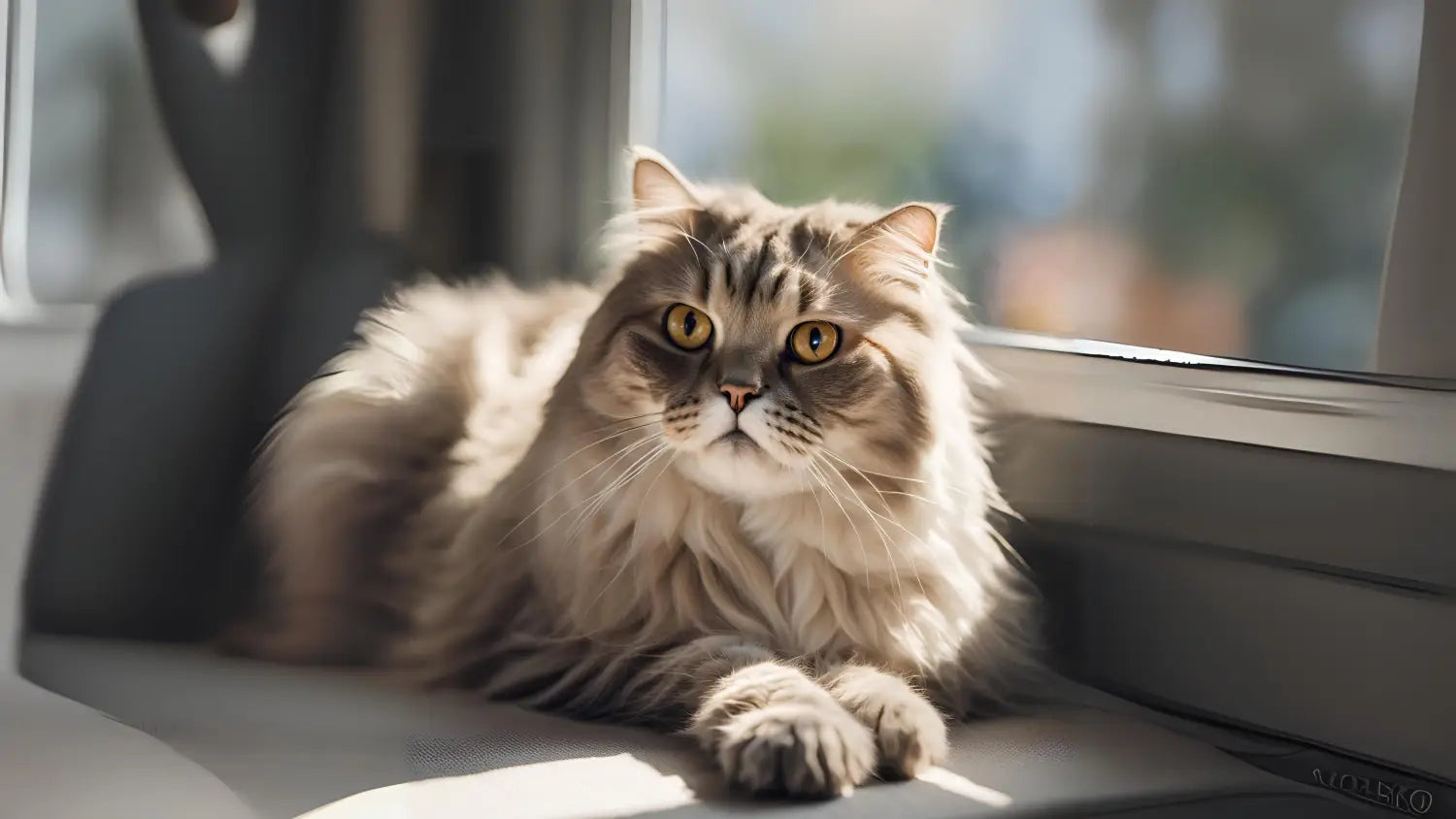
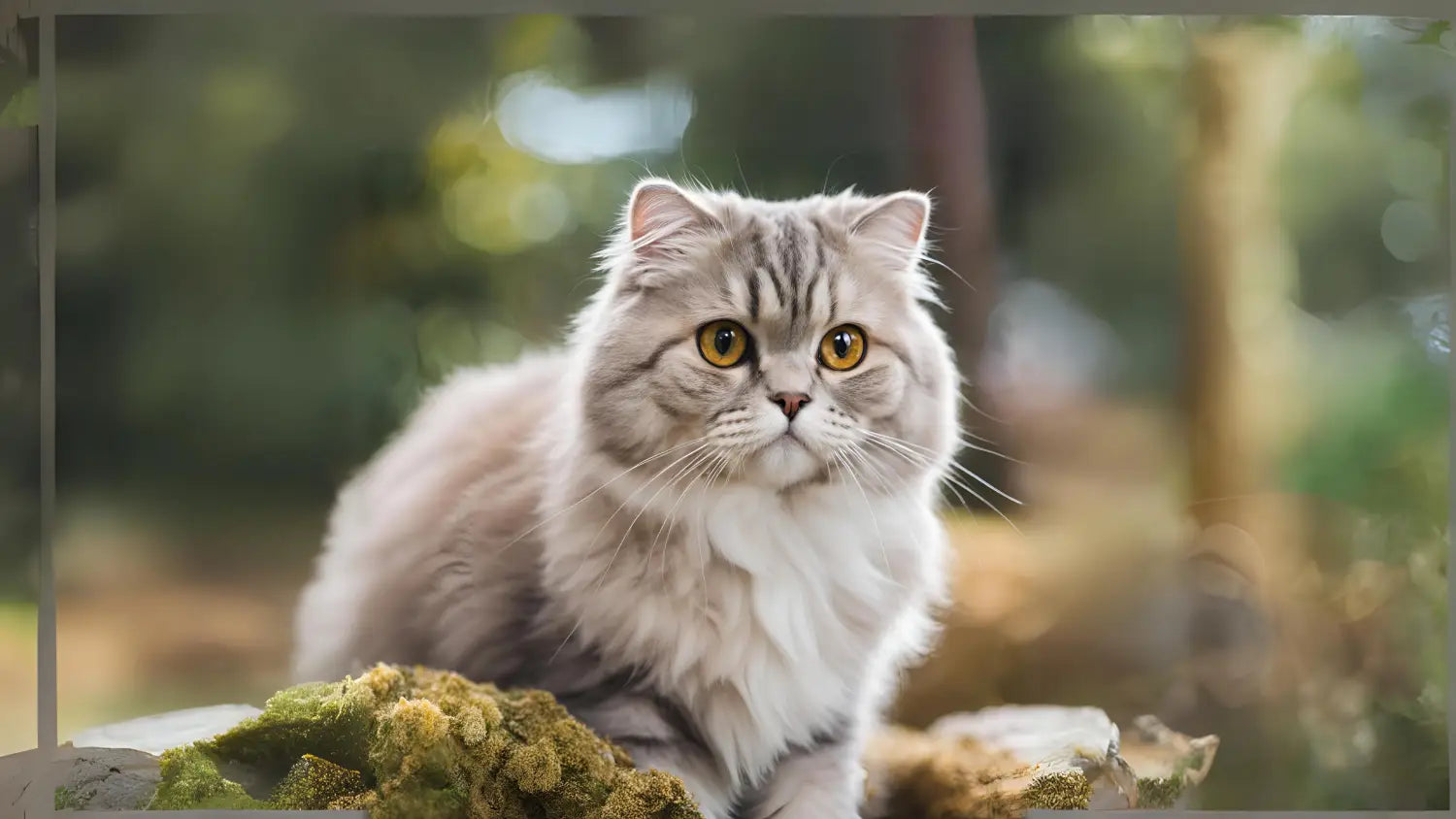




















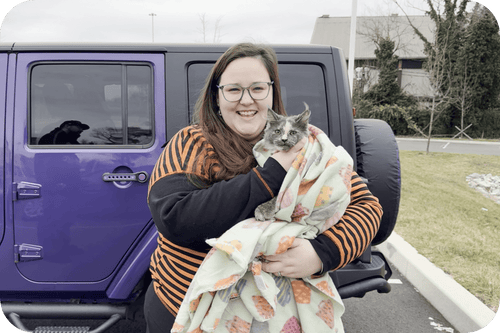

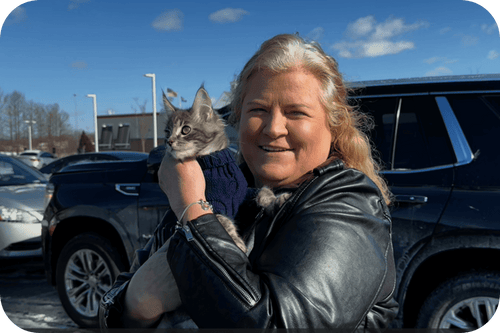


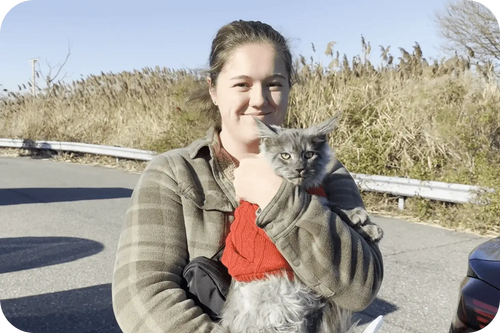
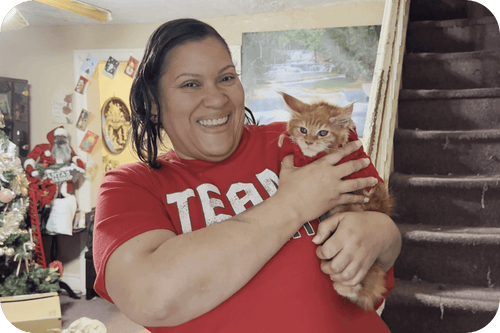
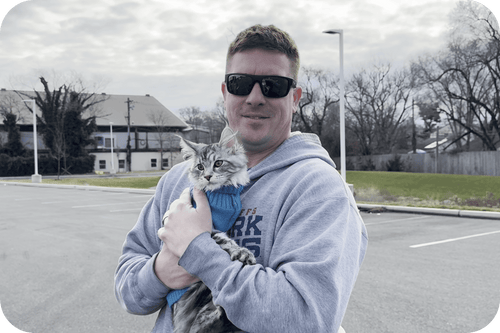



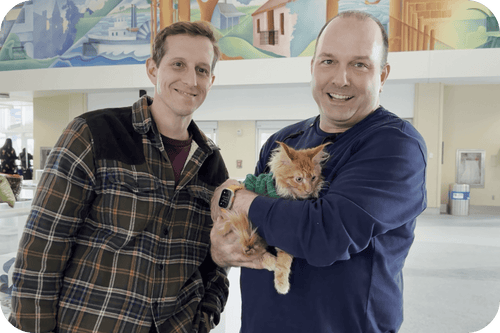


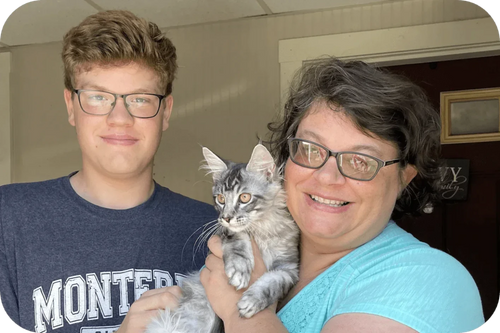
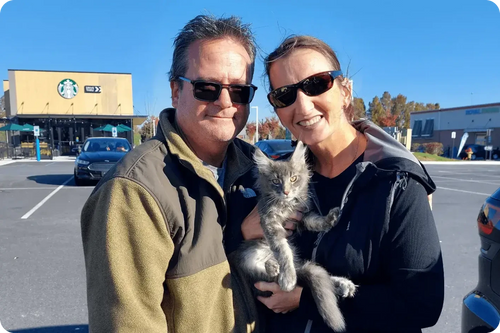
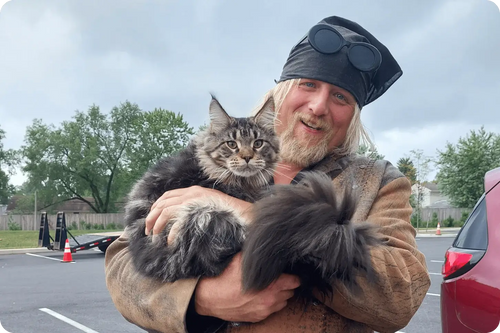


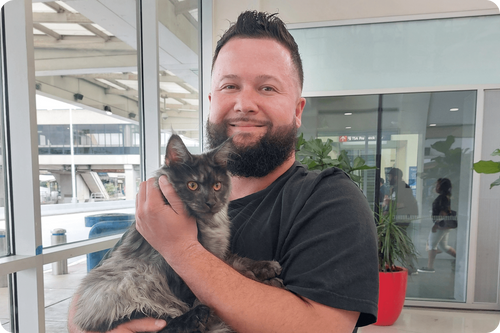













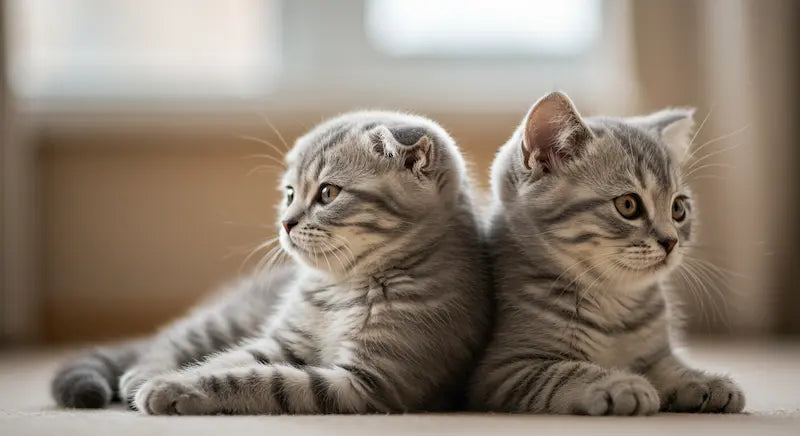
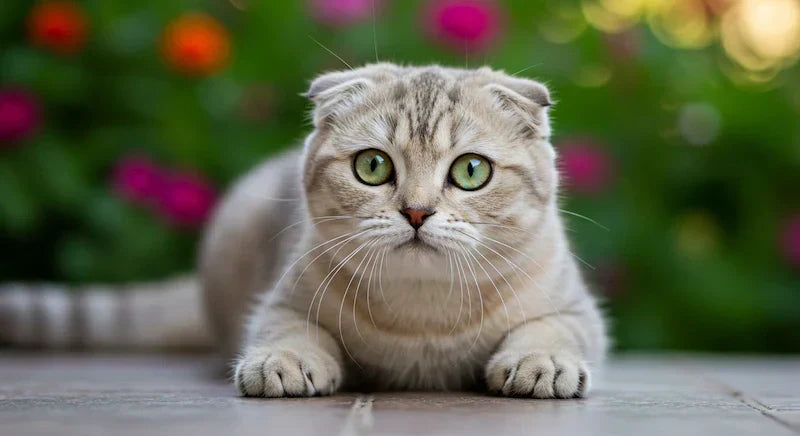
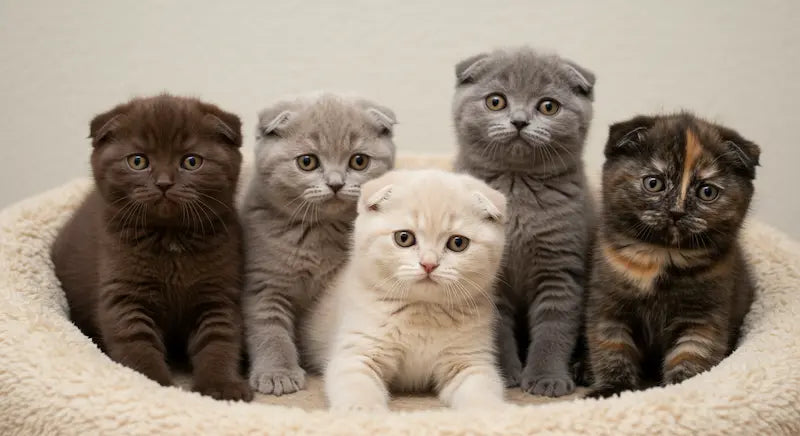




Comments(0)